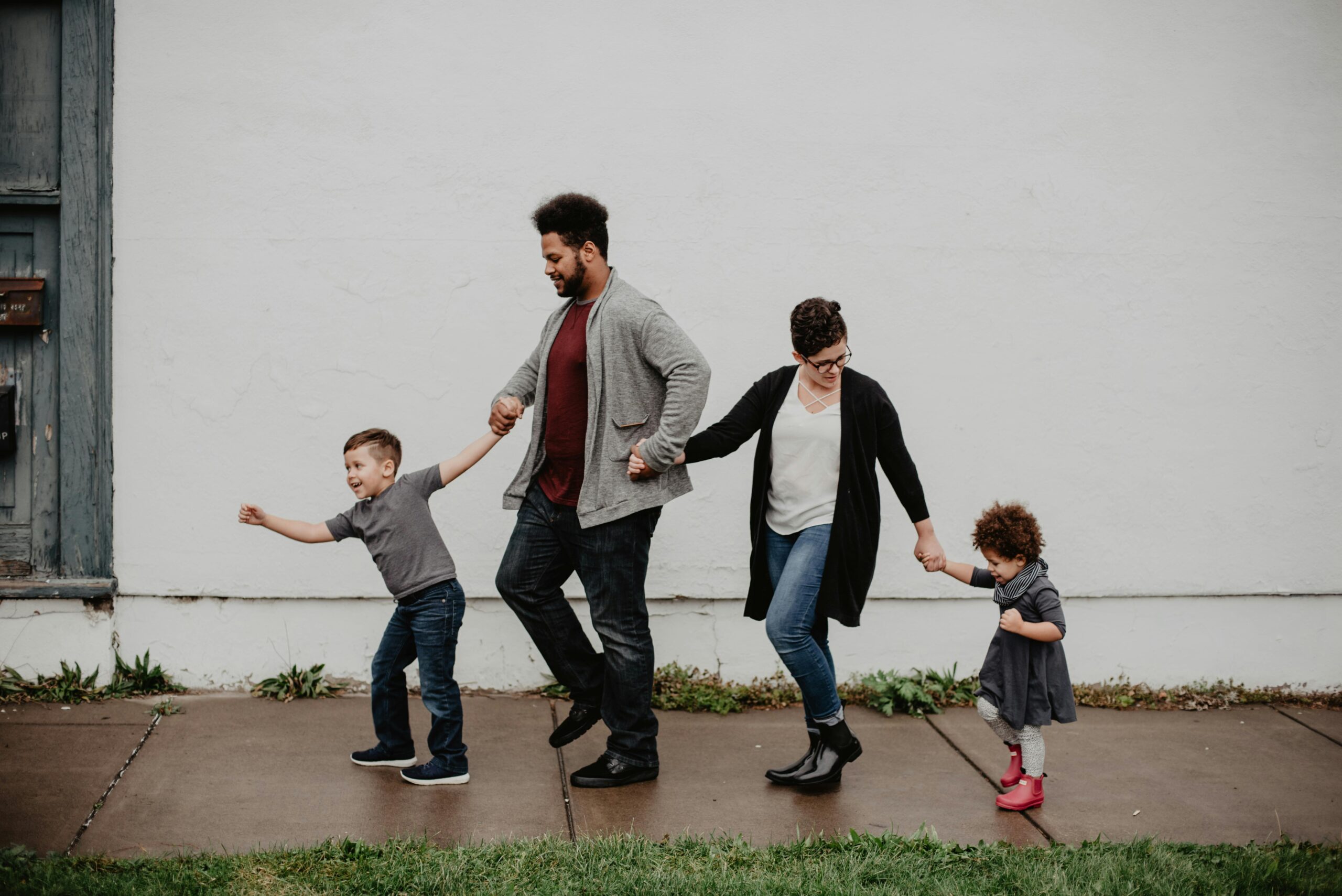
What Nobody Tells You About Love After Kids
The 3 A.M. Text I’ll Never Forget
It came from Sarah, a mom I’d been working with for a few months. Just six words: “I miss who we used to be.”
She wasn’t talking about her pre-baby body or her old career. She was talking about her marriage. About the inside jokes that used to come so easily. About the Saturday mornings when they’d linger in bed, talking about nothing and everything. About feeling like lovers instead of logistics coordinators passing each other in the hallway with diaper bags and grocery lists.
If you’ve ever looked at your partner across a room full of toys and felt more like co-managers of a very demanding startup than the two people who once couldn’t keep their hands off each other, you’re not alone. And here’s what nobody tells you about love after kids: it doesn’t die—it transforms. But that transformation? It can feel like loss before it feels like growth.
Why Love Changes (And Why That’s Actually Normal)
Let’s start with some truth that might actually make you feel better: you’re not imagining the shift. According to research from the Gottman Institute, 67% of couples experience a significant drop in relationship satisfaction during the first three years after having a baby. Two-thirds. That’s not a personal failing—that’s a near-universal human experience.
Here’s what’s happening beneath the surface: When a baby arrives, your family system fundamentally reorganizes itself. In family systems theory, we understand that every relationship in the family affects every other relationship. You’re not just adding a person—you’re creating an entirely new emotional ecosystem where everyone’s role shifts.
Your nervous system is also working overtime. Between interrupted sleep, constant vigilance, and the biological drive to protect this tiny human, your brain is literally rewired for survival mode. And here’s the thing about survival mode: it’s brilliant for keeping babies alive, but terrible for romantic connection. The part of your brain responsible for desire and playfulness gets quieted down by the part screaming “KEEP EVERYONE ALIVE.”
Meanwhile, you and your partner are often touching out, talked out, and running on fumes. The person who used to be your primary attachment figure—your safe harbor—now feels like another person making demands. It’s not that you don’t love each other. It’s that you’re both drowning, and drowning people can’t always save each other.
The Secret Nobody Mentions: Grief Is Part of the Process
Here’s the truth that sounds sad but is actually liberating: it’s okay to grieve the version of your relationship that existed before kids. That couple—the one who had spontaneous sex and uninterrupted conversations—they were real. Honoring what you’ve lost doesn’t mean you don’t adore your children. It means you’re human.
The couples I see who navigate this transition best aren’t the ones who pretend nothing has changed. They’re the ones who can say to each other, “I miss us sometimes. And I’m committed to finding the new version of us.”
How to Rebuild Connection (Without Needing a Time Machine)
The good news? Love after kids can actually become deeper, more resilient, and more intentional than before—but it requires a different approach than the effortless connection you once had. Here are the tools that work:
1. Practice Micro-Moments of Connection
You don’t need a date night to rebuild intimacy. You need six-second kisses while the pasta’s boiling. You need a hand squeeze when you pass each other. You need eye contact that lasts longer than a logistical update. Research by Dr. John Gottman shows that couples who maintain what he calls “bids for connection”—small moments of reaching out—throughout the day build relationship resilience far more effectively than weekly date nights alone.
2. Replace “We Never” with “What If We Tried”
When you’re exhausted, it’s easy to fall into the language of defeat: “We never have time anymore” or “We never connect like we used to.” Try reframing: “What if we tried setting our alarms 10 minutes early just to have coffee together?” The shift from helpless to curious changes everything.
3. Create a “State of the Union” Ritual
Once a week—maybe Sunday evenings after the kids are in bed—check in with each other about how you’re really doing. Not logistics. Feelings. “I felt disconnected from you this week when…” or “I felt close to you when…” This isn’t about solving problems. It’s about being witnessed.
4. Get Curious About Your Partner’s Hidden Load
You know what you’re carrying—the mental load, the worry, the planning. But do you know what they’re carrying? Try asking: “What’s been weighing on you lately that I might not know about?” Often, resentment dissolves when we realize we’re both overwhelmed, just in different ways.
5. Redefine Intimacy
If you’re waiting until you have energy for the kind of sex you had before kids, you might be waiting a long time. Intimacy after kids often looks different—maybe it’s 15 minutes of cuddling without phones, maybe it’s taking a shower together, maybe it’s laughing until you cry about something absurd the toddler did. Let it be messy and imperfect and shorter than it used to be. It still counts.
| Tool | What It Does | How to Try It |
|---|---|---|
| Micro-Moments of Connection | Builds intimacy through small, frequent touchpoints rather than waiting for “perfect” moments | Set a phone reminder for one six-second kiss every day—even (especially) when you’re annoyed |
| “What If We Tried” Language | Shifts your mindset from helpless to empowered and opens up possibility | When you catch yourself saying “we never,” pause and rephrase with curiosity and hope |
| Weekly State of the Union | Creates a safe container for emotional honesty before resentment builds | Pick a 20-minute window each week to share one high and one low from your emotional week |
| Curiosity About Hidden Loads | Dissolves resentment and rebuilds empathy by making invisible stress visible | Ask your partner: “What’s something you’ve been worried about that I might not realize?” |
| Redefining Intimacy | Releases pressure to perform “perfect” connection and allows real closeness to emerge | List 5 small acts that make you feel connected (holding hands, laughing together, etc.) and do one this week |
The New Love You’re Building
Sarah texted me again a few months later. This time it was a photo: her and her husband, disheveled and laughing, with their toddler asleep between them on the couch. The caption: “Not what we used to be. Maybe something better.”
That’s the thing about love after kids—it asks you to let go of effortless and reach for intentional. To grieve what’s gone and build what’s possible. You’ve already taken the hardest step by caring enough to figure this out. Pick one small thing to try this week. Maybe it’s a six-second kiss. Maybe it’s asking what they’re carrying. Whatever it is, it’s enough. You’re building a new kind of love—one that can hold crying babies, touched-out bodies, and deep, enduring commitment all at once. And that? That’s the most grown-up, beautiful kind of love there is.



